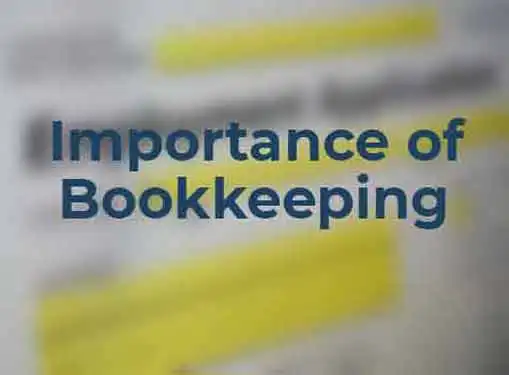Accounting for Entrepreneurs
Importance of Bookkeeping
Written by Nidhi Ann Raj for Gaebler Ventures
It is wise to keep track of how your money is used in your business to make judicious decisions. This article emphasizes the need to have an accounting system in place.
Organizing and maintaining financial records can be very challenging, but it is extremely important you do so, even if you have started your firm only recently.

Most people dread the idea of pouring into accounts, updating expenses and worrying about the numbers. However, you must understand that a well kept book is as important for the success of your business as an excellent product. If you are in the initial stages of your company's growth, it may be wise to handle (or at least oversee) the accounts yourself, as there are many advantages to it. The most obvious reason is that you will be able to see how your business is progressing (whether you are making or losing money) and keep track of your money.
You will not be surprised at the end of the year, when you check your account balance! Keeping a tab on your accounts regularly will also make your tax filing process easier. Most importantly, it will help you make sound financial and operational decisions, for example, you may want to increase your product's price, if the cost to produce it has risen.
You should have your own bookkeeping system in place from the beginning itself. It is not as difficult as it sounds. You also need not be a math whiz to understand where and how your money is being spent. Your system could be as simple as using an Excel worksheet or even a book of Accounts, which tracks your income vs. your expenses or you could use a standard bookkeeping tool or system like QuickBooks or Harvest. Either ways, use a tool which is simple and easy to understand by you.
Your accounting system should have separate sections for different types of transactions. Try to split the accounts into minute details as much as possible. For example:- Split them into month wise inflow and outflow transactions. Transaction wise, you could keep separate tabs for cheques, credits, sales, insurance (if any) and other bills. When you note down expenses, keep the direct and indirect expenses separate. To make it more interesting, start by creating a simple financial statement.
This is a combination of a balance sheet and an income statement. While the balance sheet explains your assets and liabilities as of a given date, the income statement provides you a brief on how much money you have made or lost (profit or loss) in a given period of time.
No matter what accounting methods you use, the idea is to be on top of your money from the start of your business. If you find it difficult to use any of the standard accounting packages available, use the help of someone who knows it, till you get accustomed to it.
Nidhi Ann Raj is a gifted writer who is currently pursuing post-graduate studies at George Brown College in Toronto Canada, where she is specializing in Marketing and Finance.
Share this article
Additional Resources for Entrepreneurs

Conversation Board
We greatly appreciate any advice you can provide on this topic. Please contribute your insights on this topic so others can benefit.